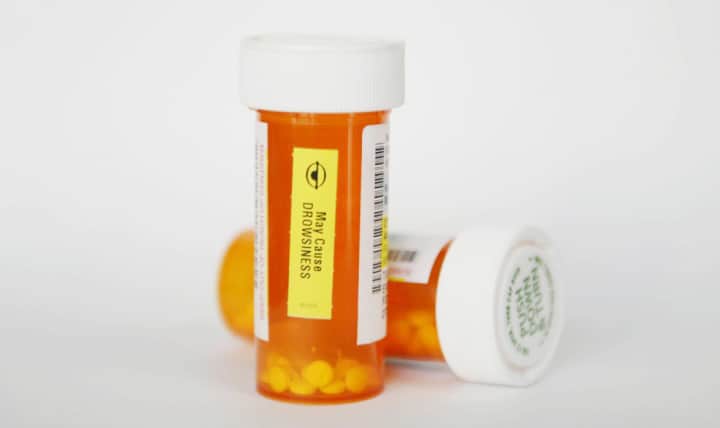 On December 27, 2017, Cook County filed suit against many of the nation’s top pharmaceutical companies in order to recover costs incurred from widespread opioid addiction. This civil action makes the county just the latest of the dozens of government bodies nationwide to have filed an opioid lawsuit.
On December 27, 2017, Cook County filed suit against many of the nation’s top pharmaceutical companies in order to recover costs incurred from widespread opioid addiction. This civil action makes the county just the latest of the dozens of government bodies nationwide to have filed an opioid lawsuit.
National Opioid Crisis
It’s hard to follow the news even casually today without being painfully reminded of the ongoing national opioid crisis. As prescriptions for powerful opioid painkillers such as OxyContin, Fentanyl, and Hydrocodone quadrupled over the past quarter-century – from 76 million in 1991 to nearly 300 million in 2014 – the number of Americans addicted to these drugs has reached epidemic proportions, as have the number of overdose deaths. In 2016 alone, the U.S. saw an estimated 71,614 fatal overdoses, with more than 74 percent of those involving natural or synthetic opioids, heroin, or methadone.
The problem has grown so rampant that on March 22, 2016, the U.S. Food and Drug Administration (FDA) characterized opioid addiction as a “public health crisis” and began implementing class-wide safety labeling changes for opioid pain medications, including boxed warnings about the “serious risks of misuse, abuse, addiction, overdose, and death.”
Opioid Litigation
While new FDA regulations may help curb future opioid addiction, the significant costs (both financial and societal) that are associated with those who are already addicted still remain. Faced with such a large public health crisis, many state and local governments have started fighting back in the courts.
Since 2014, at least ten states and dozens of cities and counties have sued drug companies, distributors, pharmacies, and doctors. These lawsuits typically allege that the defendants knowingly marketed and overprescribed opioids meant primarily for short-term use to treat long-term pain, causing a huge spike in drug addiction. For example, Cabell County in West Virginia recently filed suit against multiple drug manufacturers and pharmacies for “selling more than 40 million doses of opioid painkillers to the county between 2007 and 2012, during which time the county’s population was 96,319.” That works out to roughly 415 doses for every man, woman, and child in that county.
The state and local governments who have filed opioids lawsuits are seeking to recover expenses incurred by frequent opioid-related overdoses, such as public ambulance and hospital costs and drug emergency training for law enforcement, and some of these suits have already yielded results. Most recently, Illinois Attorney General Lisa Madigan negotiated a $4.45 million settlement against Insys Therapeutics, a drug manufacturer that she alleged had marketed a highly addictive Fentanyl-based cancer pain drug for off-label uses.
Cook County’s Opioid Lawsuit
Cook County’s opioid lawsuit follows along similar lines to those previously filed by other counties, cities, and states. It names many of the nation’s largest pharmaceutical manufacturers as defendants, including Purdue Pharmaceuticals, Johnson & Johnson, Abbott Laboratories, Endo International, and their various corporate holding companies.
The lawsuit seeks punitive and compensatory damages for what it alleges are the millions of dollars Cook County incurs annually because of the opioid crisis. Such costs include:
- The significant increase in overdose patients treated by Cook County Health and Hospital Systems;
- Opioid prevention and treatment programs operated at Cook County Jail; and
- The rise in the number of autopsies performed because of opioid-related deaths.
The civil complaint, which was filed in Cook County Circuit Court, claims that aggressive marketing on the part of opioid manufacturers contributed to the spike in opioid-related deaths and overdoses in the county.
DuPage, Lake, Kane, McHenry, and Will Counties filed similar suits the previous week.
Tragic Statistics Statewide
Even a cursory look at recent opioid statistics suggests the extent of the crisis both in Cook County specifically and in the state at large.
According to the Cook County Medical Examiner’s Office, 647 people died from opioid-related overdoses in the county in 2015. That number increased significantly in 2017. As of the beginning of December of that year, Cook County had already seen 847 opioid-related deaths.
The view is even bleaker at the state level. In 2016, nearly 1,200 people died in Illinois from overdoses in which opioids were involved.
Attacking the Root Causes
Advocates for these lawsuits argue that they are not only seeking to recoup government expenses but also to attack the problem itself and effect positive change.
In a news release, Cook County Board President Toni Preckwinkle said that she hoped that the county’s opioid lawsuit could “aggressively confront one of the root causes of the nationwide epidemic,” adding that “This is a public health crisis affecting nearly every community in the county for which we must find a solution.”
<< BACK TO BLOG POSTS